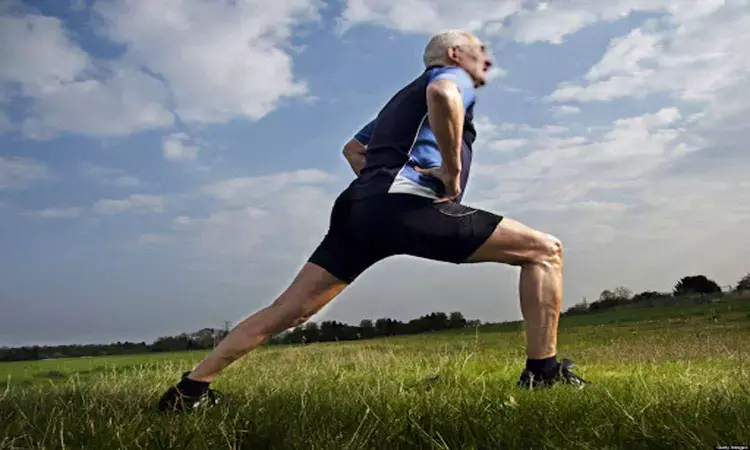- Home
- Medical news & Guidelines
- Anesthesiology
- Cardiology and CTVS
- Critical Care
- Dentistry
- Dermatology
- Diabetes and Endocrinology
- ENT
- Gastroenterology
- Medicine
- Nephrology
- Neurology
- Obstretics-Gynaecology
- Oncology
- Ophthalmology
- Orthopaedics
- Pediatrics-Neonatology
- Psychiatry
- Pulmonology
- Radiology
- Surgery
- Urology
- Laboratory Medicine
- Diet
- Nursing
- Paramedical
- Physiotherapy
- Health news
- Fact Check
- Bone Health Fact Check
- Brain Health Fact Check
- Cancer Related Fact Check
- Child Care Fact Check
- Dental and oral health fact check
- Diabetes and metabolic health fact check
- Diet and Nutrition Fact Check
- Eye and ENT Care Fact Check
- Fitness fact check
- Gut health fact check
- Heart health fact check
- Kidney health fact check
- Medical education fact check
- Men's health fact check
- Respiratory fact check
- Skin and hair care fact check
- Vaccine and Immunization fact check
- Women's health fact check
- AYUSH
- State News
- Andaman and Nicobar Islands
- Andhra Pradesh
- Arunachal Pradesh
- Assam
- Bihar
- Chandigarh
- Chattisgarh
- Dadra and Nagar Haveli
- Daman and Diu
- Delhi
- Goa
- Gujarat
- Haryana
- Himachal Pradesh
- Jammu & Kashmir
- Jharkhand
- Karnataka
- Kerala
- Ladakh
- Lakshadweep
- Madhya Pradesh
- Maharashtra
- Manipur
- Meghalaya
- Mizoram
- Nagaland
- Odisha
- Puducherry
- Punjab
- Rajasthan
- Sikkim
- Tamil Nadu
- Telangana
- Tripura
- Uttar Pradesh
- Uttrakhand
- West Bengal
- Medical Education
- Industry
Regular physical activity improves physical and psychological frailty: Study

Researchers have found in a new study that regular physical activity is associated with maintaining or improving overall, physical, psychological, and social frailty.
The study results were published in the Journal of the American Geriatrics Society.
Frailty is a multidimensional concept characterized by the loss of reserves, including energy, physical ability, cognition, and health. The prevalence of frailty strongly increases with age.
As more of us live longer, it's likely that frailty will pose a larger public health problem in the near future. Experts in geriatrics (the field of health care focused on care for older adults) suggest that maintaining a healthy lifestyle may reduce your chances of becoming frail.
One aspect of a healthy lifestyle is getting regular physical activity. However, studies on the association between physical activity and frailty among older adults show different results. Some studies suggest that regular physical activity could delay frailty and reduce its severity, but other studies do not. And most of the studies have examined people aged 50 to 70, so the information we have for people over age 70 is limited.
To address this gap, researchers conducted a new study as part of a European project that promotes healthy aging in older adults. They examined the benefits of assistance that helps older adults follow their prescribed medications and prevent falls, frailty, and loneliness. The participants received care at study sites in five European countries (Spain, Greece, Croatia, the Netherlands, and the United Kingdom).
Among other questions, the participants were asked, "How often do you engage in activities that require a low or moderate level of energy such as gardening, cleaning the car, or taking a walk?"
Researchers considered that "regular frequency" was engaging in such activities more than once a week; "low frequency" involved engaging in these activities once a week or less.
Of the participants, 1,215 adults over the age of 70 were included in the group that received assistance. 1,110 received no intervention but were followed for comparison. Participants in the first group received a risk assessment, shared decision-making, and care aimed at reducing their fall risk, inappropriate medication use, loneliness, and frailty.
Compared with participants who were moderately active at the start of the study, participants who were moderately active once a week or less were significantly more physically, psychologically, and socially frail at the study's follow-up period.
The participants who were regularly, moderately active were the least frail, and participants who were moderately active less than once a week were the most frail.
The researchers learned that people over 70 who were physically active on a regular basis, as well as people who increased their level of activity to a regular basis, were able to improve or maintain their level of frailty--not only physically, but also psychologically and socially.
For further reference log on to:
Dr Kamal Kant Kohli-MBBS, DTCD- a chest specialist with more than 30 years of practice and a flair for writing clinical articles, Dr Kamal Kant Kohli joined Medical Dialogues as a Chief Editor of Medical News. Besides writing articles, as an editor, he proofreads and verifies all the medical content published on Medical Dialogues including those coming from journals, studies,medical conferences,guidelines etc. Email: drkohli@medicaldialogues.in. Contact no. 011-43720751


